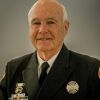Hundreds of people vie for every firefighter job whenever an opening or a testing process is posted. If you’ve made it to firefighter, you’ve proven that you are part of an increasingly select group.
If all you want to be is a firefighter forever — congratulations, you’ve read enough of this article.
If, however, you strive to be a company or chief officer someday, you need to prepare for the future. That means you have to consider one of the many paths for personal and professional development that will set you apart from this already elite pack.
What are your options?
First, I recommend college. An associate’s degree is almost becoming an entry-level requirement to the fire service, so a bachelor’s degree sets you apart. A master’s degree is a consideration once you are well established on your career path, but not essential right away.
Have degree, will travel
Already having an associate’s or a bachelor’s degree opens you up to several career opportunities. For example, some states require a degree to get into their leadership programs. In Ohio, it allows you to apply to the Ohio Fire Executive Program — a multi-year leadership course conducted by the Ohio Fire Chiefs Association.
The OFE program requires an individual to not only attend classes, but also to apply that knowledge to research a solution to a problem area, threat or concern facing their department at home. Each year, an applied research paper is required that clearly defines how the issue was researched, what action was taken and how the individual’s newly acquired knowledge helped to improve that condition.
A bachelor’s degree is also required for entry into the National Fire Academy’s premier Executive Fire Officer Program. This four-year program covers executive development, executive analysis of community risk reduction, executive analysis of fire service operations in emergency management, and executive leadership.
Each course requires an applied research paper on a related topic before advancing to the next year. Those considering a master’s degree should also know that several universities will count completion of this four-year program toward partial completion of the credits needed for their master’s program.
Go to Emmitsburg
But even before considering the EFOP, there are a number of classes at NFA that don’t require a college degree. NFA is one of the best-kept secrets in the fire service, and everyone needs to apply periodically.
Travel expenses to Emmitsburg, Md. is usually covered for most classes. There are modest fees for meals and dormitory rooms.
In addition to the class work, there are two other advantages to attending the NFA.
One is the networking among students is an experience that will last for years. Even now, I’ve kept in contact with several key fire service professionals that had humble beginnings among those of us attending classes at NFA.
The other advantage is that the NFA campus provides a picturesque respite that allows you to recharge your batteries while you learn from recognized experts in their field.
Associations and certs
Don’t ignore the opportunities at your state fire academy as well. Not only are there courses taught by local and state instructors, but many have the NFA’s outreach courses on a regular basis.
There are other courses well worth your time, such as the Fire Officer I thru IV series, as well as those leading to fire inspector or fire investigator certifications. Several state academies also partner with state universities or community colleges to combine their classes with credit toward a college degree.
There are other paths to enhance your personal and professional development. For example, membership in organizations such as the International Association of Fire Chiefs and the National Volunteer Fire Council provides educational and networking opportunities.
Application to the Institution of Fire Engineers is based upon a review of educational, professional and life experience. There are various categories within the IFE — associate, member and fellow — that an individual can obtain based on advancement in the fire service.
Those obtaining the IFE member designation can also obtain the Chief Fire Officer designation under a reciprocal agreement with the Commission on Fire Accreditation International. Likewise those obtaining CFO can receive an IFE member status.
Firehouse dinosaurs
The goals of both organizations are to assist their members in their continuous improvement, education and proficiency that enhances the professionalism of the individual and the fire service both nationally and internationally.
The EFO, CFO, and MIFireE designations also provide the opportunity to attend conferences and courses with other designees. It opens opportunities to learn from the best researchers in the field of fire science as well as how other countries are tackling similar problems to ours, such as new lightweight construction techniques.
The point with any of these career moves is that anyone who truly wants to be a fire service professional needs to dedicate themselves to the continual improvement, expansion and renewal of their knowledge and experiences.
When I was starting out, firefighters referred to some of their chiefs as “dinosaurs.” That meant that chief had checked out or retired in place without any attempt to expand their knowledge, let alone to try something new.
For example, once as a new company officer anxious to get 5-inch supply hose on my engine company, I approached a chief and asked him to come with me to a demonstration of its advantage for water movement over the customary one or two 2 ½-inch supply lines.
The chief replied, “Five-inch hose? Where you gonna get the manpower to hold a 5-inch nozzle?”
Don’t be that chief, company officer or even firefighter that inhibits professional development. Remember: It’s more than a job; it’s your profession.
This article, originally published March 18, 2016, has been updated












